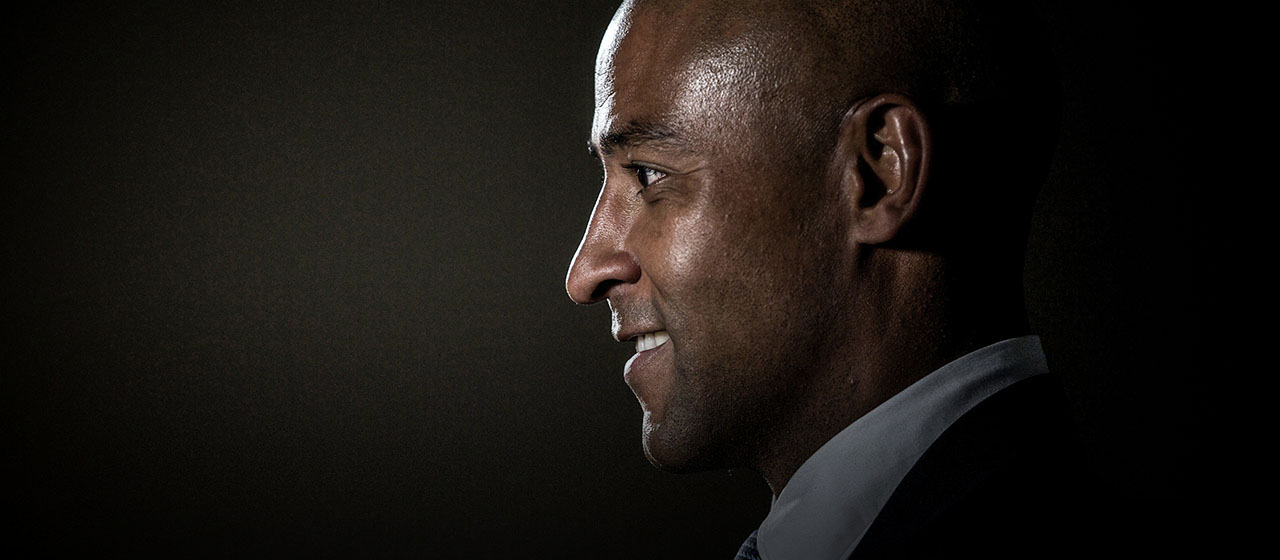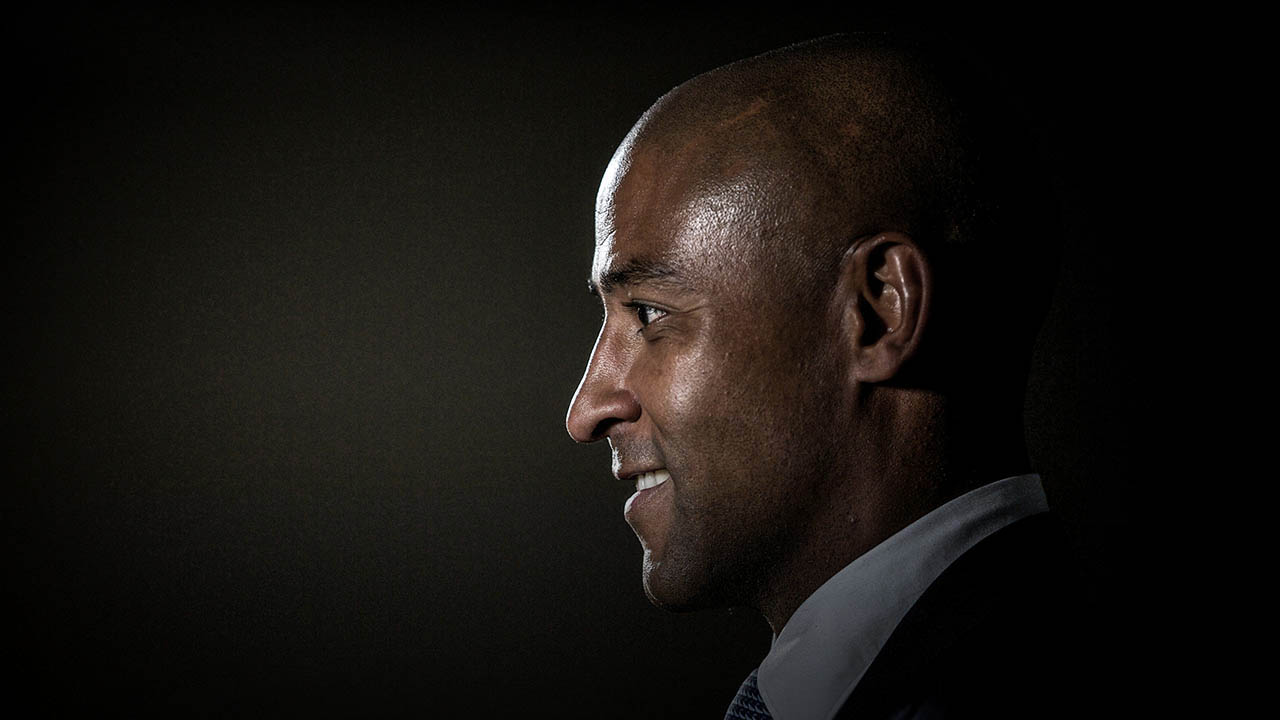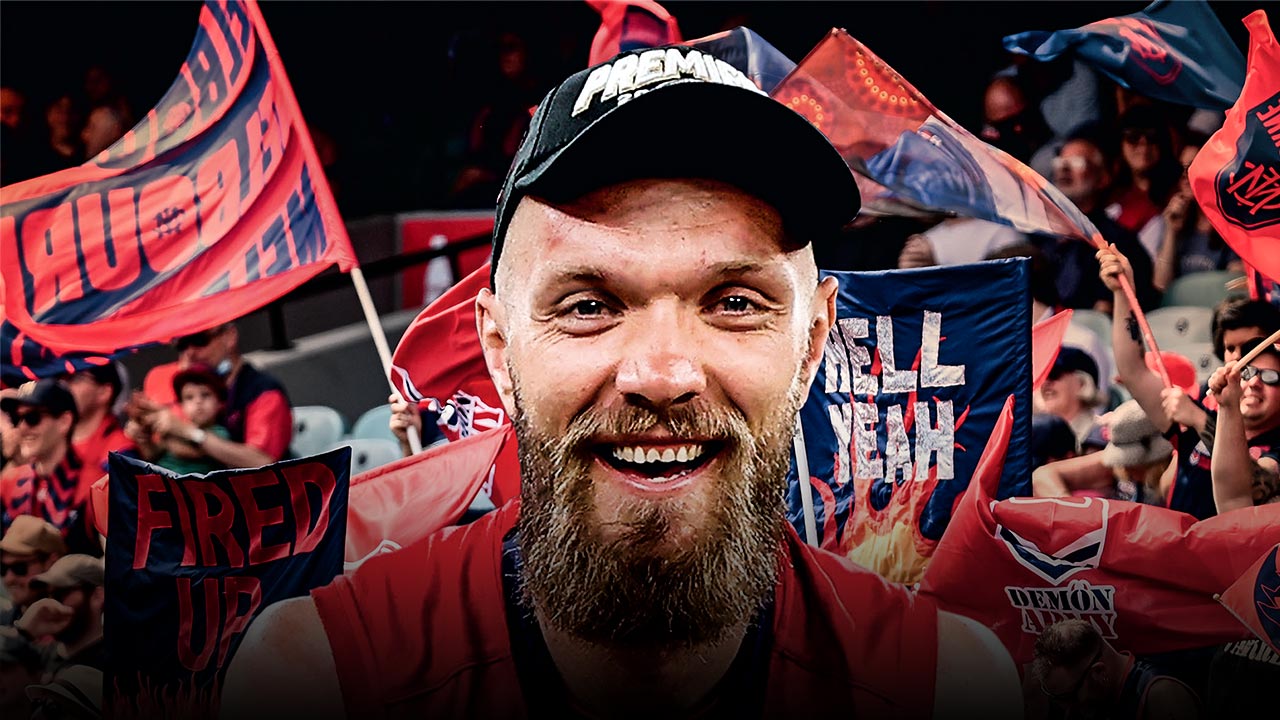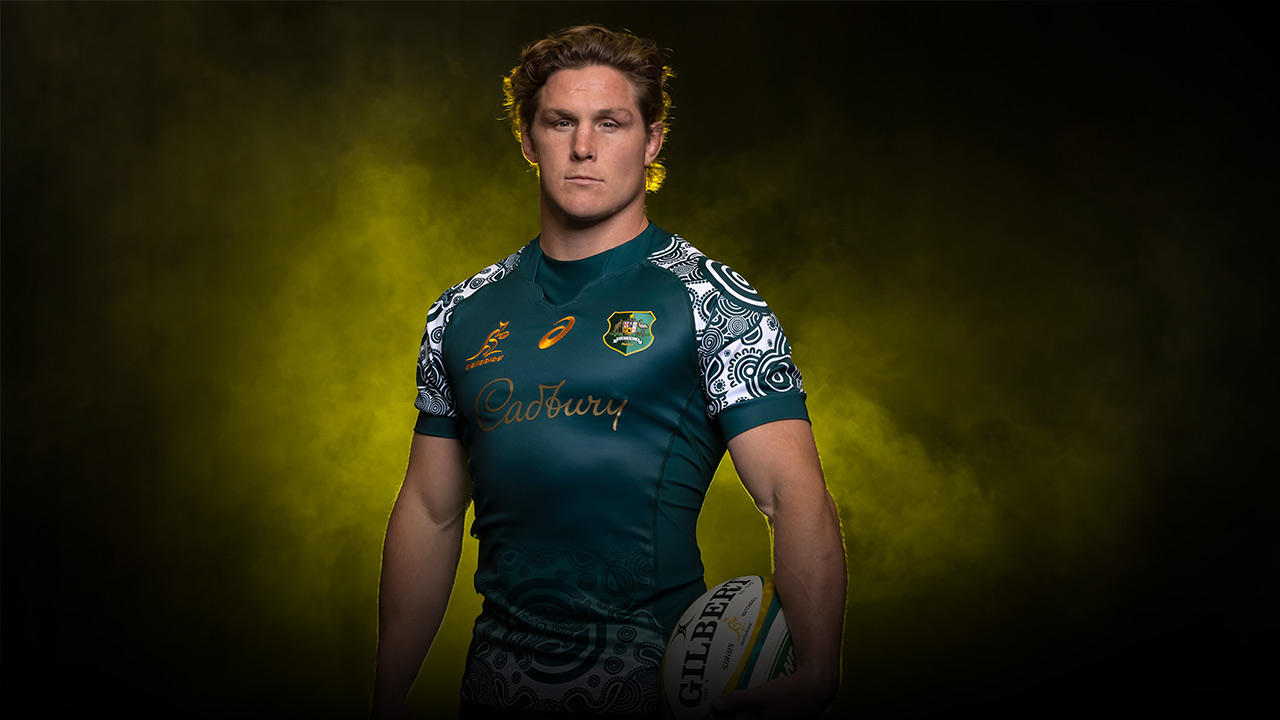Rugby
Sport versus business
Much is made of the crossover between sport and business, the threads of similarity in communication, motivation, politics and decision making. I regularly lean on my learnings from my rugby days, but you also need to understand where the two worlds separate.
After all, who goes to the office and sits down to work in front of 80,000 people? With people yelling at you, throwing stuff at you, sometimes spitting at you? No one goes to work like that.
WHAT YOU CAN’T SAY
My sporting world was a high-performance environment where communicating well was essential to getting the desired outcome.
The language that’s used in an elite sporting team simply wouldn’t be tolerated in a corporate environment. I don’t mean profanity, just the directness. You’d offend too many people and spend your whole time in HR. Spend time around a high-performing team and you soon realise there are no ifs or buts, it’s a very direct sort of communication. And it’s all about getting the best possible performance.
I look at cooking shows on TV, see the way some chefs talk to their staff, and I can understand it. It’s a high-pressure, high-performance environment where success hinges on everything being done correctly. You don’t have time for mistakes. It’s brutal – if you don’t get it right, you throw it away and start again. You learn to listen to what’s being asked of you, understand the process and get on with it.
Before big Test matches or series we would gather for a base camp in Coffs Harbour, and there was usually a period when family would join us for a couple of days. Our wives and partners would attend a training session while they were there, and witness first hand the dialogue around where everyone needed to be at all times, the roles you were expected to fill. In that environment, if someone gets it wrong the reprimand is immediate and very direct. My wife Erica and the other partners were blown away by the intensity of that communication, the way we spoke to each other. But that’s the way it’s got to be.
After all, who goes to the office and sits down to work in front of 80,000 people? With people yelling at you, throwing stuff at you, sometimes spitting at you? No-one goes to work like that.
And that’s at training in front of 20 people. In a full stadium in front of 80,000, getting that communication right is essential, be it verbally, visually, even physically if you should literally push someone into position. It’s a unique environment, one you’re not going to replicate in business. But seeing it up close offers a great insight, like being inside the ropes at a golf tournament, standing a couple of metres from Adam Scott or Jason Day when they hit the ball. You go, “Oh wow, is that the sound it actually makes?”
If people are uncomfortable with that direct communication, if it makes them anxious, they won’t be able to perform. You can’t hide in sport – you simply have to perform. If you’re in a high-performing team, you’re there to win. Some people thrive, others evolve and learn to embrace it, and for some it’s just too much to handle. But that’s life, isn’t it?
Direct communication is important, but in business or sport you also need an understanding of who you are. You hear people talk about their identity as a team or group, how they want to be seen. It’s one thing to say that, another is understanding how you’ll perform under pressure to give yourself the best possible chance of achieving the end result. You need to come back to those key points.

THE THREE KEYS TO SUCCESS
We were lucky to have the Steve Waugh Australian cricket teams around when I was playing rugby, that incredible era, and they came and spoke to us a few times. They always repeated the three Ps – pressure, partnership, patience. People would ask, “Is that all it is?” Under pressure you want to come back to that – in the eye of the needle in a tight contest, championship teams come back to what identifies their consistent good performance.
We obviously had partnerships in rugby, and we were patient – we were prepared to win a game in the 83rd minute. And we were big on completion, which was something we could chart. Win the lineout, get your passing right, run your lines, do what we practiced. Under fatigue you come back to that, because that’s when your head starts playing with you – you start looking at the scoreboard, looking at the clock, hearing what’s being said by the opposition.
I was in a leadership role pretty much my whole career. As a halfback you’re a playmaker, you’re communicating all the time, then I became vice-captain of the Brumbies in 1996, a year later was vice-captain under John Eales for the Wallabies, then was captain of both from 2001. I learnt a lot through being under people such as David Wilson, David Campese, Timmy Horan, wonderful players. When someone was brought in they made you feel welcome and made sure they understood what it meant to play in the team, what their role was. And if those expectations weren’t met, their response was brutal.
If people are uncomfortable with that direct communication, if it makes them anxious, they won’t be able to perform. You can’t hide in sport – you simply have to perform.
With maturity you learn that the best form of leadership is doing your job first. You ask a lot of your teammates, but ultimately you’ve got to do your job at the highest possible level. The other thing is helping people to grow. As I got older I judged myself more and more on making the players around me better. You’re always looking to improve individually, but good leaders make those around them better too. When I look at other sporting teams and disciplines, I like those sort of players, they’re the ones I’m drawn to. That’s strong leadership.
A good coach lets his leadership group make the decisions on the field. They plan, but there are things a coach can’t feel or see.
That’s where you trust the leaders to make the call that’s right at the moment. When I was captain we’d normally always say, “Take the points, take the points”, but if you had a feeling you could score you’d ask the guys, “Can we lock down this scrum and go?” We loved attacking off a scrum, we had some of the best outside backs in the world, so it became a bit of a no-brainer. The coaches would have planned around taking the three points, keep building, keep building. But in the moment you’d go, “No, let’s go for seven.”

JONNY & THE ART OF GAMESMANSHIP
When the group had that attitude you could ask the guys in leadership roles, “Can we lock down this scrum?” You’d get a response. “Have we got the player to run? Is he feeling comfortable? Yep. Okay, let’s do it.” I’d be making the final decision on whether we go for it, but I’m asking a lot of people to help me reinforce that’s the right decision.
We did it during a Test against England at Twickenham in 2002, when we were struggling just after half-time. We were up against Martin Johnson’s team, who hadn’t lost at Twickenham for years. We hadn’t had much ball and we could have thrown it over for three points, but it felt like we hadn’t played. We had a strategy to attack around where Jonny Wilkinson was because he had a bad right shoulder. We set up the play and had Stirling Mortlock run at him. Elton Flatley dummy switched and went through to score his first try for Australia, and we ended up losing an epic game 32-31.
Stirling would have told Jonny he was going to run at him and test his shoulder. Jonny Wilkinson was proper tough and seriously courageous, but that was part of the game. You’d be setting up and saying, “Right, here we go, right shoulder.” There’s a line you don’t cross in sport, but there’s also a reason why it’s elite – because it’s brutal. It’s physically and mentally demanding. When you do all the testing there’s not much separating the players, that’s why the mental side of it is so important.
You don’t have time for mistakes. It’s brutal – if you don’t get it right, you throw it away and start again.
I think gamesmanship is portrayed badly in the media. If you can get someone thinking about something they shouldn’t be for that small moment, or make them bite when they shouldn’t, you can create the hole for someone to run through. I grew up playing cricket, opening the batting, and you’d get out there and the opposition would be saying, “He never hits anything in front of square.” They’d put four slips in, get inside your head and try to get you to push at one. It gets you thinking, and that’s all part of it.
MILK RUN TO BUSINESS EMPIRE
My first job was at 14, working on an afternoon milk run delivering to businesses. I saw what the guy who owned it put in – going to the depot to pick up the milk, getting the ordering right so there was minimal wastage. I worked in a cinema for a while and the same thing applied – get your preparation right, don’t create unnecessary waste. I did some labouring for our next door neighbour who was a builder, saw the hard work he put in, the preparation required to do his job well. You don’t think about it too deeply at the time, but it was a damn good experience to have at a young age in learning what’s required to run a successful business.
Above all you need good people.
If I could give advice to the 25-year-old me who stood outside Wynyard station in 1998 counting commuters before opening our first coffee shop, some of it – keep your costs down, get a cheap lease with lots of foot traffic – would have nothing to do with sport. But the most vital wisdom I’d impart is a fundamental of the business and sporting worlds: never, ever skimp on consistency.

There are times in my corporate life when the athlete in me kicks in, and preparation is definitely one of them. Consistency comes from repetition – good repetition. Don’t repeat bad habits, and don’t drop the ball when you’re told what they are. Always look to adjust and make changes along the way. In selling coffee the landscape is changing all the time, but the fundamentals – making good coffee – never will. Be really good at the fundamentals. And in the same way that consistent elite performance is achieved in sport, that’s done through repetition.
Nearly 20 years on from counting those commuters at Wynyard station, the Gregan Group has over 220 staff spread across more than 20 business varying from coffee shops to food and beverage into bistro bars. We talk about our shops as teams and the managers as captains. Feedback fuels better performance, both positive and negative. You can’t be patted on the back all the time, you should be spoken to about the things you can do better. If things need to be fixed then bad habits have set in. It’s very competitive – it’s not as if you’re the only coffee shop or place offering food in Sydney.
At times I think like an athlete, and others I slip into a business mindset. We went to Europe recently with another business I’m part of, in health and fitness, and in the lead-up I automatically slipped into Eddie Jones mode – starting with the date of the first meeting and working backwards in the planning. What do we need to do in our preparation? Delegate the responsibilities required. Practice it beforehand if we need to. Because one thing sport and business do have in common, if you don’t put in the preparation you don’t give yourself the best chance of delivering.
More about: Adam Scott | Business | Eddie Jones | Leadership | Wallabies






 Load More
Load More